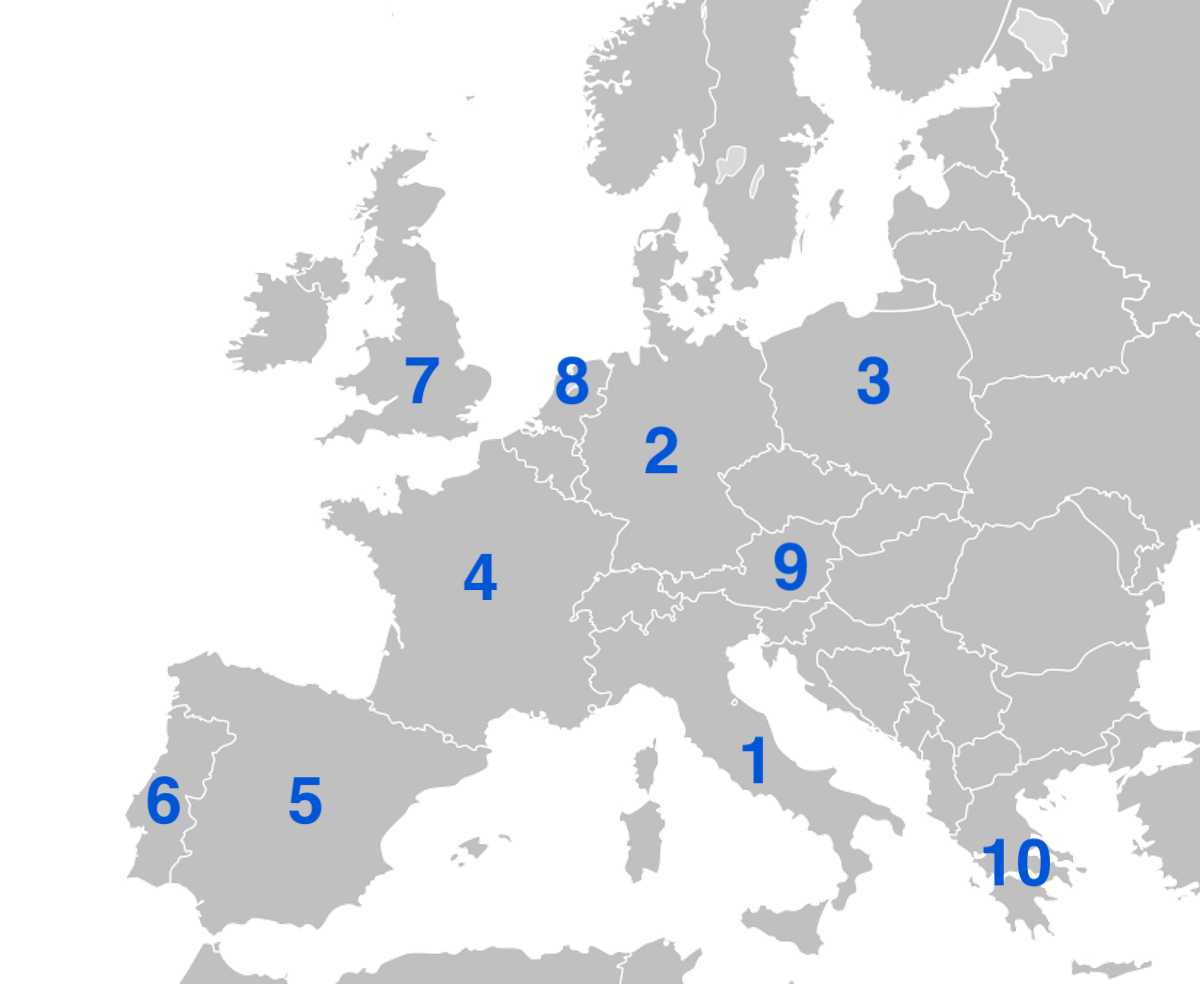
Ten Countries - Ten Popes Trivia Quiz
In this quiz, you'll meet ten popes from various European countries. Your challenge is to identify their country of birth and locate it on a map of Europe.
A label quiz
by wellenbrecher.
Estimated time: 3 mins.
